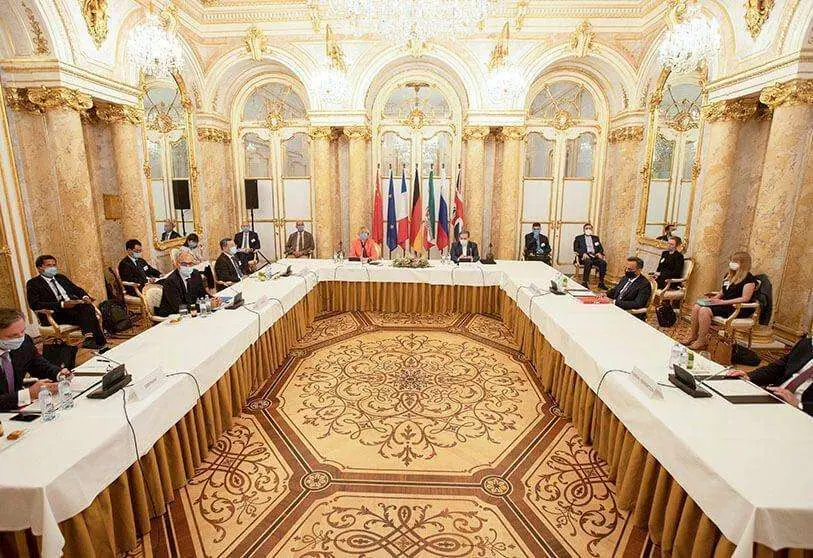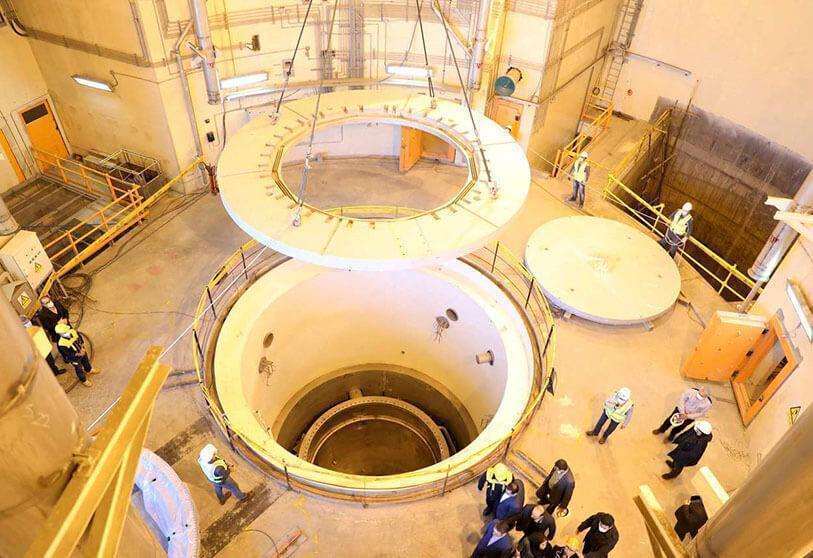Iran mocks the United States by claiming that the September ultimatum will serve no purpose

A snap back is on the US agenda this month. In other words, to carry out the sanctions they had against Iran before abandoning the nuclear pact in 2018. This announcement has sparked a major debate within the UN Security Council, where most countries reject the idea by following the roadmap agreed in 2015 which indicates the end of sanctions by the end of 2020.
For its part, Iran, which has been complying in one way or another with the points to be followed from the 2015 pact for five years, refuses to accept that the sanctions will continue and from the government spokesman announces that "nothing will happen on 20 September except the isolation of the United States", as stated by Ali Rabbi, the Iranian spokesman.
According to the 2015 nuclear pact, the United States, China, France, Britain, Russia and Germany agreed to limit Iranian uranium production in exchange for the lifting of all the United Nations, national and other multilateral sanctions. Following this decision Iran undertook to make "exclusively peaceful" use of nuclear energy.
With Trump's arrival in power, Washington exited the nuclear pact in 2018 by reactivating a tougher independent package of sanctions with retroactive effect. The sanctions imposed on Iran by the United States had a domino effect that included all states that negotiated, traded or had any kind of relationship with the Islamic Republic.
The rest of the countries have followed the 2015 roadmap. The date for the lifting of the arms embargo will expire in October and France, the United Kingdom and Germany have no intention of further extending this embargo. However, Washington appeals to the fact that, having been an initial signatory to the 2015 pact, despite having abandoned the agreement, it can again request an extension of the sanctions.
However, several members of the Council such as China and Russia consider that Washington does not have the right, once the pact has been abandoned, to demand that everyone extend the sanctions. Nevertheless, the United States says it will go ahead and is convinced that, as of 20 September, all Council members will reinstate these sanctions.

Everything points to the fact that the United States will not achieve its objective. And Iran insists that the rejection of Washington's action is "unanimous". Rabbi has stressed that Iran will "continue to interact respectfully and with goodwill with all the countries of the world and international organisations in the face of this unprecedented threat".
An open debate with many unknowns will continue over the next few weeks, which does not seem to convince Iran, which is mocking the US by saying that "nothing will happen" at the end of the month.
- Iran will not produce highly enriched uranium for the next 15 years.
- Iran will get rid of 98 percent of the nuclear material it possesses.
- Iran will eliminate 2/3 of the centrifuges it has installed.
- The powers will be able to verify "for the first time" the degree of compliance with the agreement.
- In return, the United Nations will lift all sanctions on Iran linked to the nuclear programme, albeit with some limitations.
- Before starting the lifting, Iran will have to comply with the "basic steps" of the agreement.
- The sanctions will be maintained for the next five years in the case of weapons and for the next eight years in the case of ballistic missiles.








